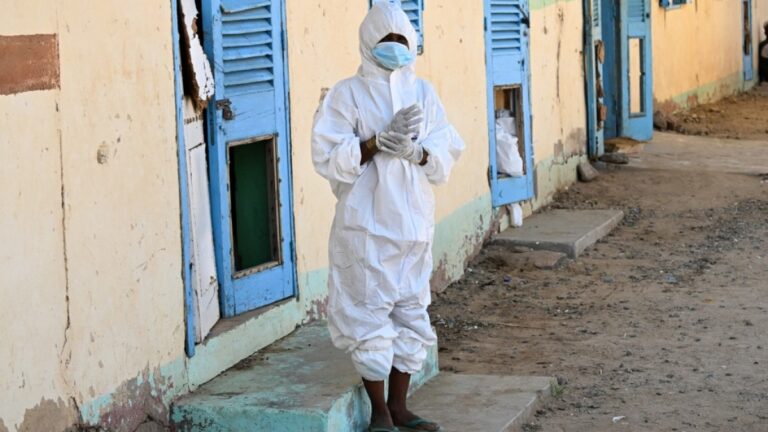Cholera outbreak is centred around the capital city, Khartoum, which has been devastated by more than two years of war.
A cholera outbreak in Sudan’s Khartoum has killed at least 70 people in two days, local health authorities said.
The health ministry in Khartoum state reported on Thursday 942 new infections and 25 deaths the previous day, following 1,177 cases and 45 deaths the day before.
The outbreak is centred around the capital city, Khartoum, which has been devastated by more than two years of war between the Sudanese army and the paramilitary Rapid Support Forces (RSF).
The city lost access to water and electricity earlier this month following drone attacks blamed on the RSF.
The army-backed government announced last week that it had dislodged RSF fighters from their last bases in Khartoum State, two months after retaking the heart of the capital from the paramilitaries.
The city remains devastated with health and sanitation infrastructure barely functioning.
According to the federal health ministry, 172 people died of cholera in the week to Tuesday – 90 percent of them in Khartoum state alone. Aid workers say the scale of the outbreak is being worsened by the near-total collapse of health services, with about 90 percent of hospitals in key war zones no longer operational.
“Sudan is on the brink of a full-scale public health disaster,” said Eatizaz Yousif, Sudan country director for the International Rescue Committee. “The combination of conflict, displacement, destroyed infrastructure, and lack of clean water is fuelling the resurgence of cholera and other deadly diseases,” she told AFP.
Since August 2024, Sudan has reported more than 65,000 suspected cholera cases and at least 1,700 deaths across 12 of its 18 states. Khartoum alone has seen 7,700 cases and 185 deaths, including more than 1,000 infections in children under five.
The spread of disease is expected to worsen with the upcoming rainy season, which is likely to further restrict humanitarian access. Aid groups warn that unless urgent action is taken, the death toll could soar.
According to the United Nations children’s agency UNICEF, more than one million children are at risk in cholera-affected areas of Khartoum.
“We are racing against time … to provide basic healthcare, clean water and good nutrition,” said Sheldon Yett, UNICEF’s representative in Sudan. “Each day, more children are exposed to this double threat of cholera and malnutrition.”
The war, now in its third year, has killed tens of thousands of people, displaced 13 million and created the world’s largest displacement and hunger crisis.

